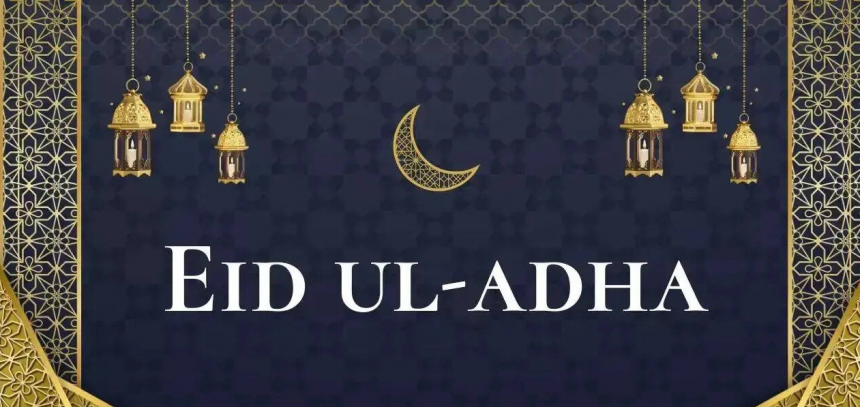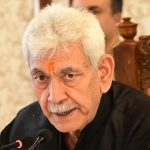Long before the coming of the Last Prophet of God, Muhammad (SA‘AS), Prophet Ibrahim (‘AS) had thus invoked his Lord: “Our Lord! Send amongst them a Messenger of their own, who shall rehearse Your Signs to them and instruct them in Scripture and Wisdom, and Sanctify them.” (Qur’an, 2:129) It is the Last Prophet of God who, by the leave of his Lord, took the religion of all the Prophets of God, Islam, to its culmination. To this effect the Qur’an says: “This day have I perfected your religion for you, completed My favour upon you, and have chosen for you Islam as your religion.” (5:03) With this proclamation the mission of Prophet Ibrahim (‘AS) also reached its fruition.
As Prophet Ibrahim (‘AS) had struggled very hard to establish the ‘Monotheistic Mission’ (Islam) during his whole lifetime, therefore, his endeavour got symbolised through the Grand Sacrifice of his son, Isma’il (‘AS) which was eternalised through the sacrifices which the believers have been observing thence forward. Regarding this Grand Sacrifice and the eternalization thereof, the Qur’an says: “He had laid him (Isma‘il) prostrate on his forehead (for sacrifice)! …….. And We ransomed him with a momentous sacrifice: And We left (this blessing) for him among generations (to come) in later times.” (37:103-108)
Almost all human societies have been making sacrifices since times immemorial in one way or the other. So far as the case of Abrahamic Faiths (before Islam) is concerned, they have had their own tradition of making sacrifices. This has been alluded toin verse 183 of Chapter 3 of the Qur’an. This verse reads: “They (the Jews) said: Allah took our promise not to believe in a Messenger unless he showed us a sacrifice consumed by fire (from heaven).”
However, there is a full anecdote of the sacrifices made by the sons of Adam (‘AS), Habil (Abel) and Qabil (Cain). The Qur’an reports this anecdote as:“Relate to these people the account of the two sons of Adam (Habil and Qabil) which is absolutely true. When both of them made a sacrifice, the sacrifice from one (Habil) of them was accepted, whilst that from the other (Qabil) was not accepted. Thereupon, he (Qabil) said: ‘I will surely kill you.’ He (Habil) said: Indeed, Allah accepts (offering) only from the people of piety.” (5:27)
The moral of the anecdote is that a sacrifice without having a sincere motive behind it is valueless. It is the value of the motive which turns to the offering and makes it valuable. The person whose heart is not ready to make a sacrifice for the pleasure of God, will find it rejected. However, the one whose motive is sincere and noble, he finds it multiplied manifold in reward and acceptance. This signifies the fact that piety or God-consciousness while making a sacrifice in the path of God is of supreme value.
That is, if a person is not aware or conscious of the gifts of God out of which he is making the sacrifice, he is deemed to be an ungrateful person in the sight of God, because s/he never thinks that s/he cannot count the favours of God which s/he has been bestowed with: “And He gives you of all that you ask for. But if you count the favours of Allah, never will you be able to number them.” (Qur’an, 14:34) Thus, every sacrifice which a servant is asked to offer is actually a test which s/he is tested with and every test which a servant passes elevates her/his station and stature.
Now, so far as the case of the sacrifice(s) made by Prophet Ibrahim (‘AS) is concerned, it is actually a series of sacrifices made by him in the Path of God, one after another, that pleased his Lord so much so that he was declared as the ‘Leader of All People’ by dint of the utmost sincerity exhibited in each and every sacrifice.
This is how the Qur’an describes this aspect of the sacrifices made by Ibrahim (‘AS): “And remember that Abraham was tried by his Lord with certain Commands, which he fulfilled: He said: I will make you an Imam to the Nations.”(2:124) It is very interesting to note here that, unlike the material sustenance given to every person inhabiting the earth, this ‘Leadership’ is not open to all and sundry. As per the Qur’an: “He pleaded: And also (Imams) from my offspring! He answered: But My Promise is not within the reach of evil-doers.” (2:124)
To begin with, Prophet Ibrahim (‘AS), even before the commencement of his Prophetic Mission, started arguing with his father and his people vis-a-vis the irrationality of their religious behaviour. This was a ‘test’ to his intellectual maturity and intellectual integrity. There is a whole passage (in the Qur’an) to this effect in this regard, which goes as: “We bestowed aforetime on Abraham his rectitude of conduct, and We were well acquainted with him. Behold! He said to his father and his people: What are these images, to which you are (so assiduously) devoted? They said: We found our fathers worshipping them. He said: Indeed you have been in manifest error -you and your fathers. They said: Have you brought us the Truth, or are you one of those who jest? He said: Nay, your Lord is the Lord of the heavens and the earth.” (21:51-56)
Prophet Ibrahim (‘AS) next studied the pantheon of deities of his people which existed in the form of heavenly bodies. One by one, he declared this pantheon nothing but the creation of God like every other creation. Here is how the Qur’an records his argumentation with his people and his declaration of monotheism: “So also did We show Abraham the power and the laws of the heavens and the earth, that he might (with understanding) have certitude. When the night covered him over, he saw a star, he said: This is my Lord. But when it set, he said: I don’t love those that set.
When he saw the moon rising in splendour, he said: This is my Lord. But when the moon set, he said: Unless my Lord guide me, I shall surely be among those who go astray. When he saw the sun rising in splendour, he said: This is my Lord; this is the greatest (of all). But when the sun set, he said: O my people! I am indeed free from your (guilt) of giving partners to Allah. For me, I have set my face, firmly and truly, towards Him Who created the heavens and the earth, and never shall I make partners to Allah.” (6:75-79)
Again, Prophet Ibrahim (‘AS) was tested by God when he had to face the powerful emperor. Here again, he utilised his intellectual prowess as well as his Prophetic Wisdom to defeat the monarch. This interesting passage has been put forth by the Qur’an as: “Have you not turned your vision to one who disputed with Abraham about his Lord, because Allah had granted him power? Abraham said: My Lord is He Who gives life and death. He said: I give life and death. Said Abraham: But it is Allah that causes the sun to rise from the East: do you then cause it to rise from the West. Thus was he confounded who (in arrogance) rejected faith.” (2:258)
As his people found themselves helpless before the Wisdom of Prophet Ibrahim (‘AS), they, instead of trying to satisfy him, planned to punish him. As per the Qur’an: “(Abraham) said: Do you then worship, besides Allah, things that can neither be of any good to you nor do you harm? Fie upon you, and upon the things that you worship besides Allah! Have you no sense? They said: Burn him and protect your gods, if you do (anything at all)!” (21:66-68)
So, having successfully passed all these tests, Prophet Ibrahim (‘AS) was declared victorious by his Lord and he was thus made the Leader (Imam) of all the People (believers, monotheists). The sacrifice which he made thus symbolised all his life mission based on the grand struggle which he went through. As such, the sacrifice which the believers observe on Eid al-Adha commemorates the Mission of Ibrahim (‘AS). That is why when the Prophet Muhammad (SA‘AS) was asked by one of his Companions about the Sacrifices which they used to offer, the Prophet (SA‘AS) replied: “This is the Tradition of your Father, Ibrahim!” (Narrated by Zaid ibn Arqam)
(The Author is Sr. Assistant Professor Islamic Studies, Department of Higher Education
Govt. of J&K. Feedback: [email protected])








